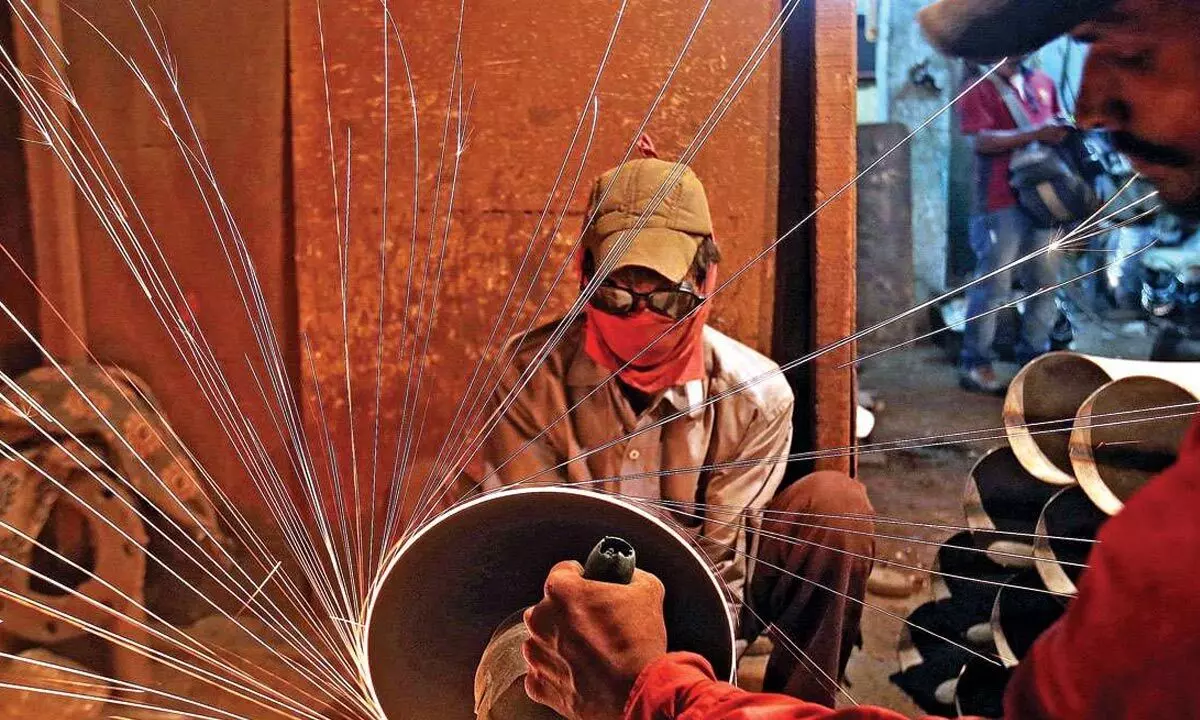A belated, but welcome, push for MSMEs
India currently has 63 million micro, small and medium enterprises (MSMEs), according to approximate estimates. According to a recent study by Small Industries Development Bank of India (Sidbi), some 65 per cent of MSMEs have availed benefits under the Emergency Credit Line Guarantee Scheme (ECLGS).
image for illustrative purpose

India currently has 63 million micro, small and medium enterprises (MSMEs), according to approximate estimates. According to a recent study by Small Industries Development Bank of India (Sidbi), some 65 per cent of MSMEs have availed benefits under the Emergency Credit Line Guarantee Scheme (ECLGS). The study was based on a random sample pool of 1,029 respondents across 20 states and two Union Territories. Little wonder that the Centre would want to give a push to a large number of MSMEs. In keeping with this, the Union Finance Minister Nirmala Sitharaman did precisely that with a revamped credit guarantee scheme for them effective from April 1, which, in turn, may see an infusion of around Rs 9,000 crore into the corpus.
It should be recalled that Sitharaman had proposed such a revamp last year. The revamp scheme and the corpus infusion thereof promise to enable another Rs two lakh crore in collateral-free guaranteed credit while credit costs will be reduced by nearly one per cent. Lest one forgets, the MSME segment accounts for 30 per cent of GDP and employs nearly 110 million people.
The Finance Minister has announced several other measures to support MSMEs, including extension of ECLGS till March 31, additional credit of Rs two trillion for micro and small enterprises that would be facilitated under CGTMSE, and the rollout of a Raising and Accelerating MSME performance (RAMP) programme with an outlay of Rs 6,000 crore.
Infusion of Rs 9,000 crore into the corpus of the Credit Guarantee Fund Trust for Micro and Small Enterprises (CGTMSE) should allow for better and broader scheme implementation, as well as improved claim meeting, and augur well for the sector, perceived as a major economic growth driver. Supplemental collateral-free credit is expected to aid MSMEs in overcoming the obstacles posed by the global epidemic and allowing them to continue to grow and create employment. On that count, it is a positive step in safeguarding the sector's vibrancy.
Sitharaman has also lined up plans to roll out DigiLocker storage and sharing services for MSMEs and other business entities, including startups, to enable more innovation in fintech services. It will help storing and sharing documents online, whenever needed, with various authorities, regulators, banks, and business entities. DigiLocker, a flagship programme by MeitY under Digital India, has over 14.6 crore individuals on-board and has issued 5.6 billion documents, the top ones being Aadhaar Card, policy documents, PAN verification records and insurance policy for two-wheelers. It has 2,311 issuers, of which the top issuers are UIDAI for Aadhaar, Ministry of Road Transport and Highways, all states for driving licence and registration documents, New India Assurance Co. Ltd and Income Tax Department.
Over and above these, a very important proposal is that those who take services and goods from MSMEs will not be able to claim expenditure on such purchases of goods or services unless they pay the MSME. This is expected to result in a faster payment to MSME thus improving their cash flows and therefore survival. Another important proposal for the sector is the reduction in the number of compliances. As an example, the permanent account number of the Income Tax Department would be the unique identifier across all compliances for business and specific for the medium and small-scale industries. Now all that the sector will be hoping for will be a time-bound implementation of the plans that have been formulated for their benefit.

